Developmental Systems and Stem Cell Biology Training Cluster
Developmental biology is an integrative discipline, and pioneering discoveries in this field have transformed the face of modern biological research. Landmark contributions include understanding the genetic basis of embryonic pattern and it conservation from flies to humans (1995 Nobel Prize), the mechanisms and importance of programmed cell death (2002 Nobel Prize), the underpinnings of aging and longevity, and the importance of cell and tissue polarity. It is also the origins of the field of stem cell biology (2007 Nobel Prize). Developmental model organisms have played a key role in dissecting major signaling pathways and uncovering the mechanisms controlling gene regulation, which create a foundation for understanding human health and disease, including cancer, birth defects and obesity. Developmental studies led to the discovery of RNA interference and microRNAs (2006 Nobel Prize), and they have provided fertile ground for the emerging disciplines of genomics and systems biology.
Research in the Developmental Systems and Stem Cell Biology Training Cluster is broadly focused on the complex processes regulating multicellular organisms over developmental time scales. Participating faculty members are drawn from numerous departments across Northwestern and have expertise in experimental biology, cutting edge cell biology, genomics, systems approaches and network modeling. Ongoing efforts are aimed at understanding the conserved mechanisms and principles that govern body patterning, embryonic growth and organ development, how stem cells contribute to regenerative growth, and how the misregulation of developmental processes leads to diseases such as cancer. Cluster faculty have expertise across a broad swath of model systems including planaria, c. elegans, Drosophila, Xenopus, zebrafish, chicken and mouse, all of which provide distinct experimental advantages for addressing developmental questions.
Students in the Developmental Systems and Stem Cell Biology Cluster benefit from specialized training from a highly accomplished faculty. Cluster programmatic activities include formal and informal (“special topics”) course work, journal clubs, and a literature based “technologies” club. A quarterly cluster meeting / mini symposium that includes scientific talks and poster presentations bring faculty and trainees together in a dynamic and interactive forum. The cluster catalyzes interactions between faculty and students that cross both geographic and disciplinary boundaries in order to help trainees pursue research directions that are creative, powerful, and innovative, as well as to nurture interdisciplinary collaborations that enhance research and training.
Cluster Directors- Carole LaBonne, (Co-director) Arthur E. Andersen Research/Training Professor, Department of Molecular Biosciences (Neural crest development)
Training Faculty
- Luis Amaral, Professor, Chemical & Biological Engineering (Complex systems)
- Erik Andersen, Assistant Professor, Molecular Biosciences (Gene identification and disease susceptibility)
- Raj Awatramani, Associate Professor, Department of Neurology (Mammalian CNS development)
- Greg Beitel, Professor, Department of Molecular Biosciences (Tracheal development)
- Thomas Bozza, Associate Professor, Department of Neurobiology (Olfactory development)
- Paul Burridge, Assistant Professore, Department of Pharmacology (Using induced pluriopotent stem cells to study pharmacogenomics)
- Richard Carthew, Owen L. Coon Professor in Molecular Biology, Department of Molecular Biosciences (Gene regulation of development)
- Gemma Carvill, Assistant Professor, Department of Neurology (Genetic causes and pathogenic mechanisms of epilepsy)
- Anis Contractor, Professor, Department of Physiology (Synaptic plasticity and the mechanisms of learning and memory)
- John Crispino, Professor, Medicine (normal and malignant blood cell development)
- Yuanyi Feng, Assistant Professor, Department of Neurology (Cerebral cortex development)
- Jaime García-Añoveros, Associate Professor, Anesthesiology, Neurology (Development, function, and dysfunction of sensory receptor cells and neurons)
- Alicia Guemez-Gamboa, Assistant Professor, Physiology (Neural circuit assembly)
- Mary Hendrix, President and Scientific Director CMRC, Medical Research Institute Council Professor (Stem cells and cancer biology)
- Robert Holmgren, Professor, Department of Molecular Biosciences (Cell-fate specification during development)
- Phil Iannaconne, Deputy Director for Research-Basic Sciences, CMRC; George M. Eisenberg Professor of Pediatrics (Signal transduction and development)
- Peng Ji, Associate Professor, Pathology (Mammalian hematopoiesis)
- John Kessler, Davee Professor of Stem Cell Biology (Regeneration and stem cells)
- Michael Kluppel, Assistant Professor, Department of Pediatrics CMRC (Signaling and development)
- Steven Kosak, Assistant Professor, Department of Cell and Molecular Biology (Nuclear Organization and Stem Cell Fate)
- Tsutomu Kume, Professor, Medicine (Cardiovascular development and stem cell biology)
- Carole LaBonne, Professor, Department of Molecular Biosciences (Neural crest development)
- Monica Laronda, Assistant Professor, Pediatrics (Pediatric fertility and hormone preservation and restoration)
- Yong-Chao Ma, Assistant Professor, Departments of Pediatrics, Physiology and Neurology (Neural stem cell differentiation in development and disease)
- David McLean, Associate Professor, Neurobiology (Development and plasticity of motor networks)
- Brian Mitchell, Associate Professor, Department of Cell and Molecular Biology (Planar cell polarity and embryogenesis)
- Richard Morimoto, Cook Professor of Biology, Department of Molecular Biosciences (Aging and Proteostasis in C. elegans)
- Guillermo Oliver, Thomas D. Spies Professor of Lymphatic Metabolism, Medicine (Organ morphogenesis)
- Christopher Payne, Assistant Professor, Pediatrics (Epigenetics of stem cells and the stem cell niche)
- Christian Petersen, Associate Professor, Department of Molecular Biosciences (Regeneration in Planaria)
- Hans-Georg Simon, Associate Professor, Department of Pediatrics CMRC (Development and regenerative repair of vertebrate limbs and heart)
- Beatriz Sosa-Pineda, Associate Professor, Medicine (Pancreas and liver organogenesis)
- Jacek Topczewski, Research Associate Professor, Department of Pediatrics CMRC (Embryonic morphogenesis)
- Xiaozhong (Alec) Wang, Associate Professor, Department of Molecular Biosciences (Development of the CNS)
- Eric L Weiss, Associate Professor, Department of Molecular Biosciences (Signaling pathways in the control of cell architecture)
- Jason Wertheim, Associate Professor, Surgery (Regenerative medicine and tissue engineering)

